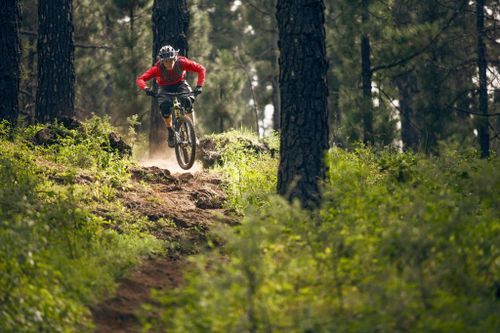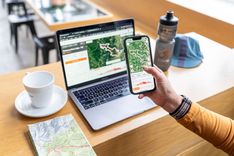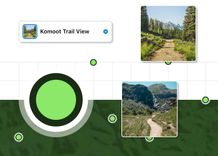It doesn't help: we don't like rules that restrict us and we cycle because of the feeling of freedom it gives us. But even if we don't like it, we have to accept that we can't have nature all to ourselves. We are not only talking about hikers and other people, but also about animals and plants, because we want to prevent that more trails and paths are closed for us, and we also have to take care that the nature in which we like to move is preserved.
Well, and a few general etiquette rules for cycling are of course also included. Less conflict on your rides means less stress. And let's face it, we do this to have fun and switch off, not to get angry and build up stress.
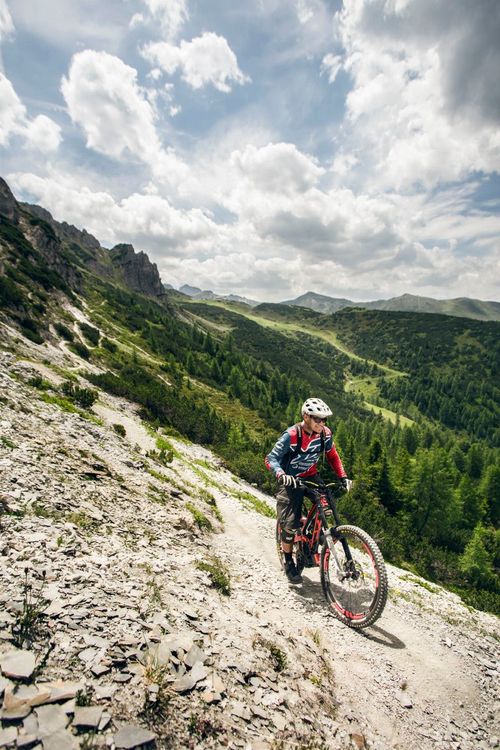
Rules for riding in the forest and off-road
Prohibited means prohibited
Yes, of course, where there is no plaintiff there is no judge. Alone in the forrest you might "overlook" a sign. But as far as possible, just plan your routes differently and stay on the marked and approved routes. We do not know why the ban exists there. The private landowner, which simply prohibits cycling on principle, will only really be the case in a few cases. Often it is about wildlife rest areas, dangerous sections where trees can fall, work is being done, or other things. Animals are also frightened and disturbed. In addition, riding on closed paths can have unpleasant consequences such as the "Besitzstörungsklage" claim, which is probably unique for Austria, and can be expensive.
Last but not least, even if you use a track from a site like ours, we and other providers cannot guarantee its accuracy! Our track network is in constant change and that's a good thing! So please pay attention, and adjust your route if necessary, if a route is recently closed, or no longer passable.
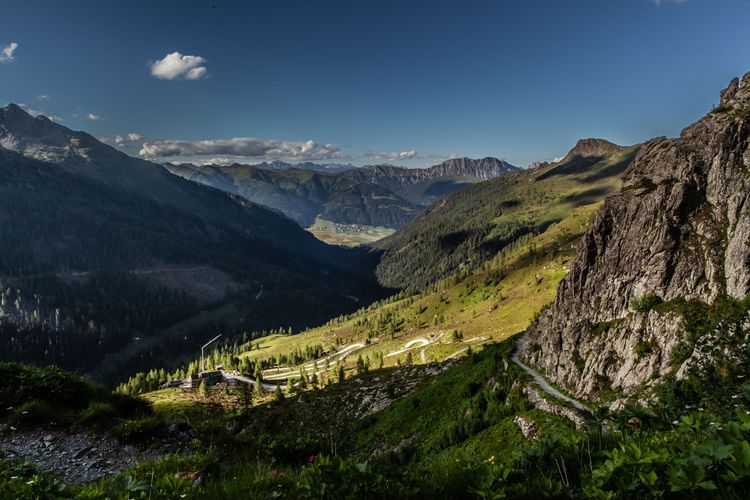
Respect rest periods
Nature also needs rest. Perhaps you have already observed that you can see especially at sunrise and sunset a lot of game near the forests. And yes, the animals also rest at night. Therefore, you should avoid riding through forests and remote nature reserves and national parks at night or very early or very late. In Austria, the official times for riding are as follows:
- March and October from 09:00 to 17:00 respectively
- April and September from 08:00 to 18:00 respectively
- May to August from 07:00 to 19:00
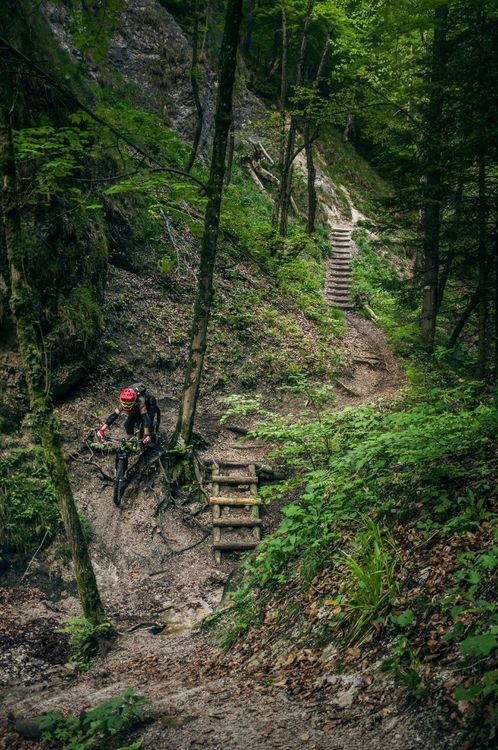
We are guests in nature
When someone enters your living room, you also assume that he or she does not behave like the proverbial "ax in the woods", right? The same must be true for us. You should avoid loud music or noises (shouting, etc.). (This also applies to blocking brakes.) We also do not hurt any plants or animals. In general: As you would like to be treated, so you treat the nature through which you cycle.
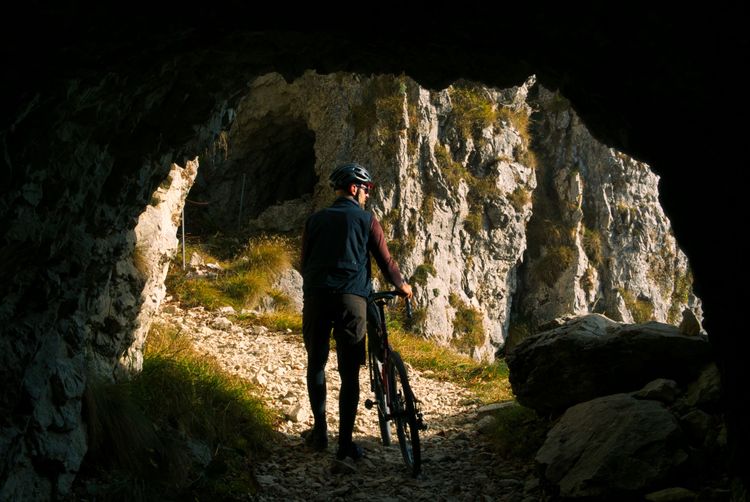
Leave no trace
We leave nature exactly as we found it. The only exception is if you want to leave it better than you found it. You can take any trash you find, but we will never leave any behind! We also leave no traces by blocking tires etc.. Because unlike in the bike park, no one cleans up in nature and takes care of the maintenance of the trails.
A difficult but unavoidable issue is human feces. If possible, of course, you should not do "your business" in nature at all. Even if animals do it, human feces are very problematic because they have much more germs and epidemic potential. Therefore, in case of emergency, you must bury your waste in a small hole to ensure that it can be decomposed as quickly as possible. Handkerchiefs, wet wipes etc. must not be left in nature under any circumstances. It takes a long time for them to decompose and some are generally not very good for nature due to their composition.
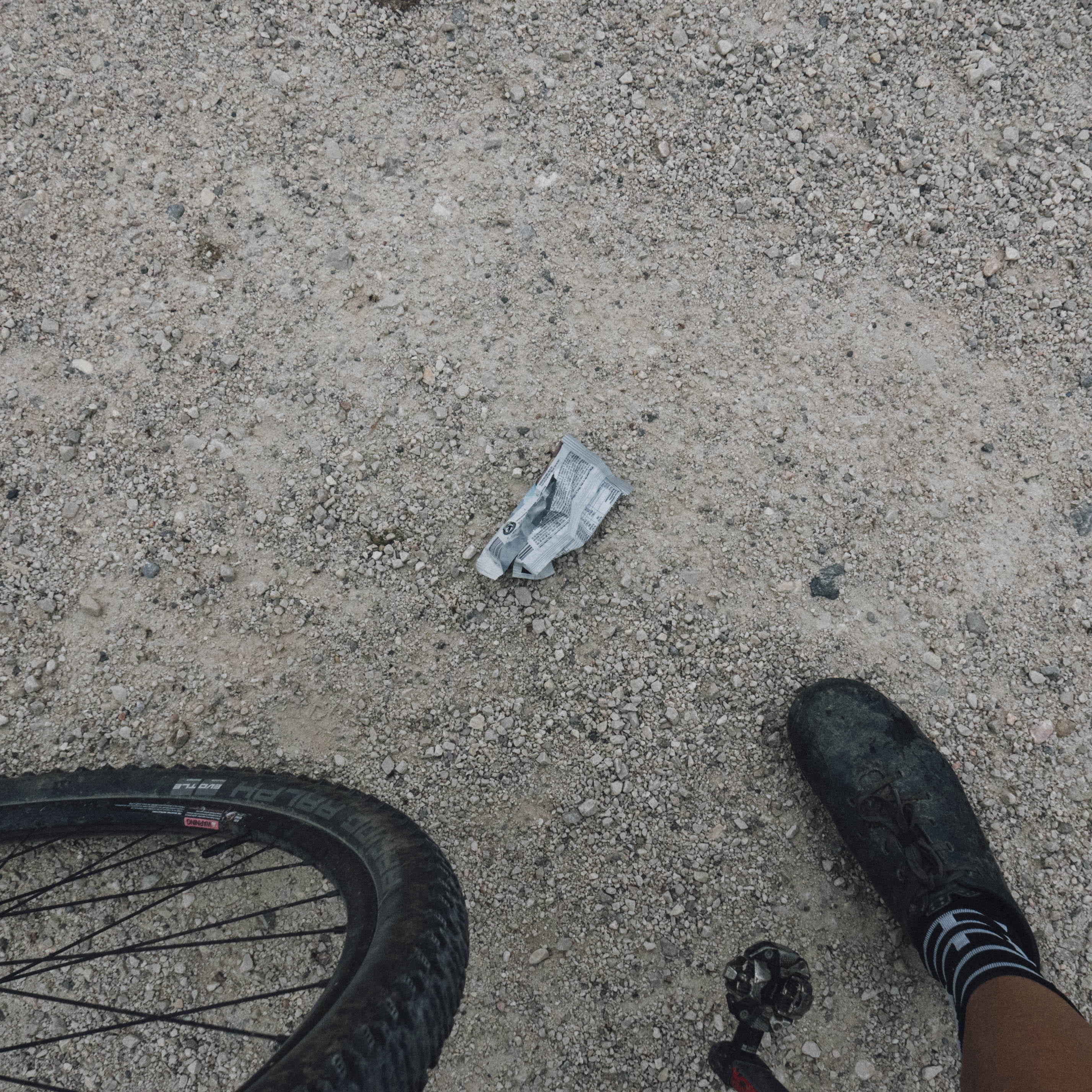
The hiker has priority
Sounds strange but this system has great success in surrounding countries like Italy or parts of Switzerland! Instead of flying past the hiker without braking, slow down and leave plenty of space, or simply wait on the side in narrow places until the hikers have passed. Even the grumpiest contemporary will give you a smile and the potential for a conflict is 99% of the cases stifled. In addition, you can look at the beautiful nature a little closer. 😜 Even if this is not a commandment or practiced in any other form in Austria, we find this as a good compromise to increase our acceptance!
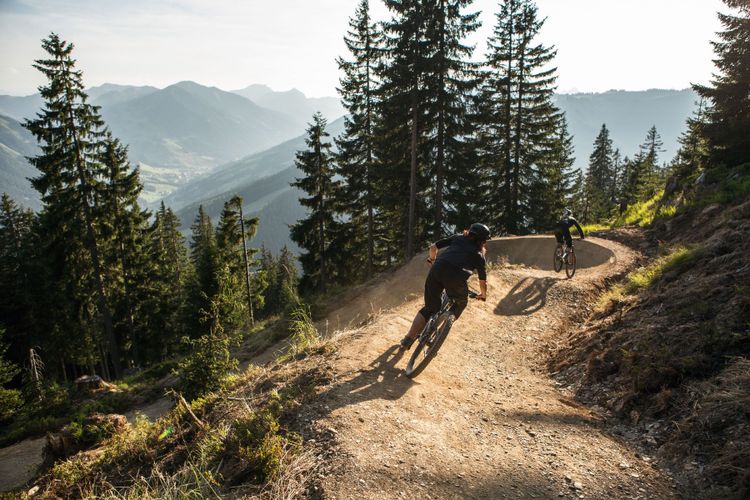
Wild camping in Austria
Here is where things get a little complicated. In the forest there is a uniform rule: camping is prohibited. However, this does not mean that you are not generally allowed to sleep outside. If and where you are allowed to do so is different in every federal state and you should inform yourself beforehand here. Mostly the classic "camping" will not be allowed. Often the exception is bivouacking in an emergency. For example when it gets dark or in case of bad weather. If you put up your tent in peace and quiet, this will not fall under it. If camping is allowed in any form, you should still consider some things. And this applies not only to Austria.
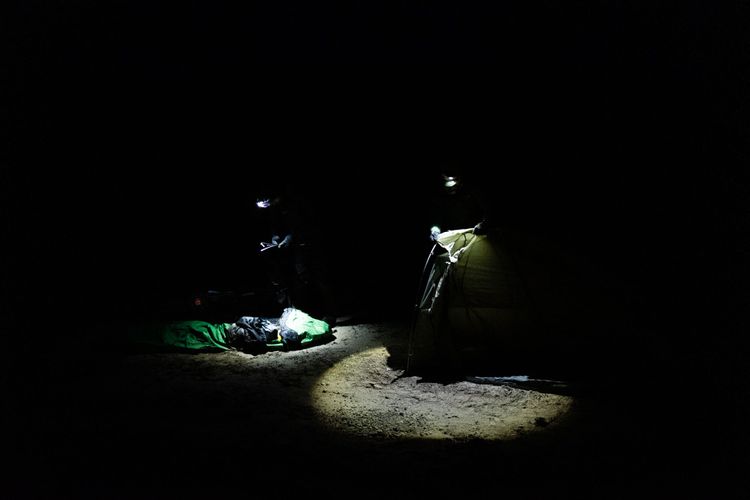
Minimal footprint.
No plants or other living creatures should be harmed by stepping on them, lying on them, rearranging soil, etc.
Avoid campfire.
You should just avoid it unless it's a place with a designated fire pit. The stress for animals is simply too high. And yes, it takes some experience to judge how and where a fire is safe. We don't want to start a fire.
We behave quietly and discretely.
Back to the topic in nature we are guests: we behave as inconspicuously as possible. Because as already said before, animals are otherwise startled and worried by us. A nice side effect is of course that we do not get any unpleasant guests at our resting place who want to scare us away.
We leave our sleeping place exactly as we found it.
It goes without saying that we do not leave any trash lying around (including banana peels and similar trash that does not belong in the landscape). In addition, you should make sure that you leave the place as if you had never been there. You have moved some stones to build a wall or something similar? Grass or plants flattened? That is bad. You should choose your sleeping place accordingly!
We only stay to sleep.
Problems will usually occur if you stay longer. As soon as it gets late and you can't/won't go any further, look for a place that is suitable. As early as possible you leave this without leaving traces. If you want to stay longer that's OK, but then you should look for an official campsite where the infrastructure exists that is needed with a longer stay.
Instagram vs. reality
Last but not least, it should be said that those great pictures you see on social media of people waking up to sunrise in their tent with a stunning mountain panorama are simply not real. In 99% of cases, the experience of wild camping will be significantly different and maybe even sobering for you. For cheap and very flexible travel, wild camping is a good tool, especially for ultra-distance riders. However, there is nothing wrong with taking a hotel. Not even the toughest ultra athlete or adventurer goes out bivying in the pouring rain for fun. And your personal adventure is not judged by the Instagram material you've collected. You do that only for yourself 😉 .
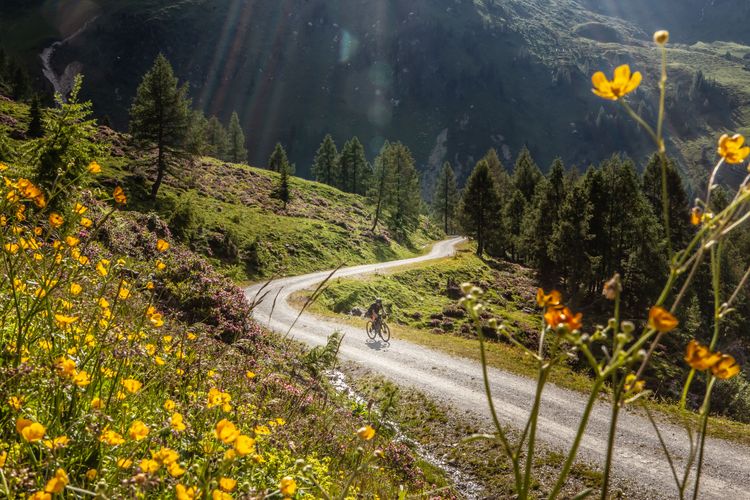
TL;DR
Very basically, there are a few rules for riding in Austria. These are:
- We ride only on routes on which riding a bike is not forbidden.
- We respect the rest periods for nature and animals from sunset to sunrise.
- We behave discreetly in nature and try to interfere with it as little as possible.
- Hikers have priority
- Camping in nature is not always forbidden, but you have to inform yourself very carefully!
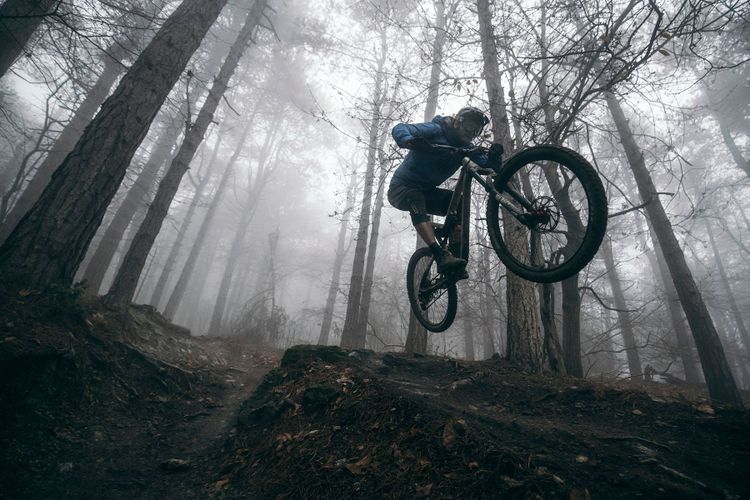
We hope this little guide will help you and that we can build up a certain "etiquette" that will improve our situation in the long term and that will open up more paths and trails for us cyclists, and perhaps, in the very distant future, contribute to a generally looser regulation for cycling in Austria. You need help with route planning? Then this way to the guide for planning routes with komoot.
Photos:
David Robinson
Chiara Terraneo
Danil Usmanov
Max Riese

